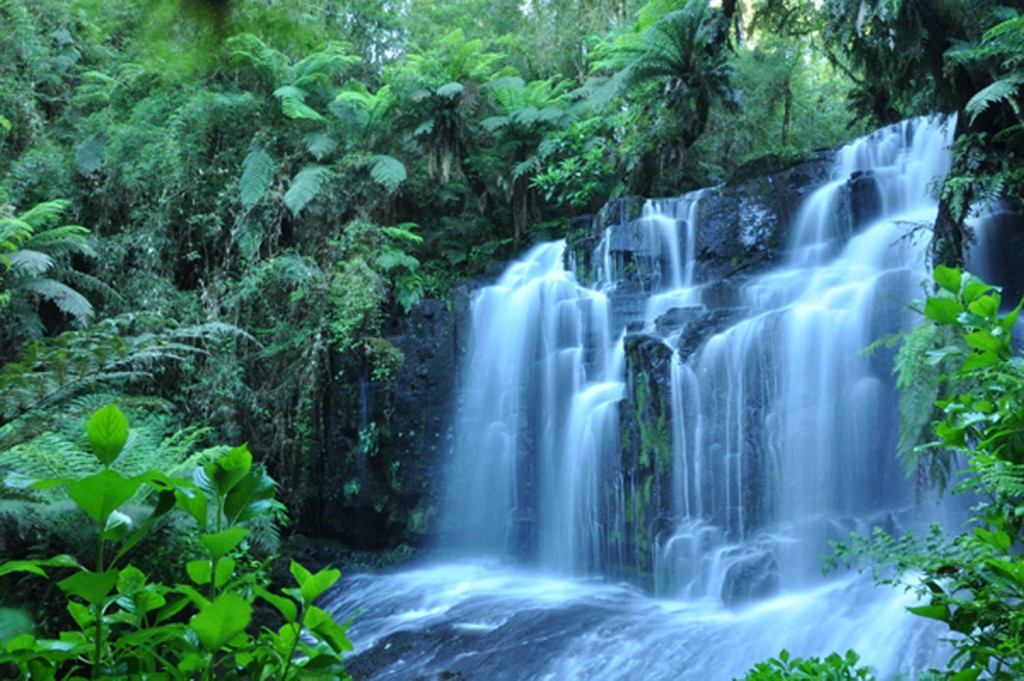Chasing waterfalls
Chasing waterfalls
Chasing waterfalls
-
Hannah
-
Hannah
There is something so romantic about a waterfall. The roaring of the water in your ears; the rainbow of colours reflected in the downpour; the shock of the plummet from the horizontal river; the sense of nature’s might.
Little wonder, then, that those who dream up love stories are drawn to waterfalls to provide the backdrop for passionate, tumultuous, powerful scenes between lovers. I’m thinking, of course, of films like Cocktail and Breaking Dawn (with Darcy’s emergence from the lake shimmering at the end of my imagination) and all manner of romance novels.
In Burning Embers, I could not resist taking Coral and Rafe to a waterfall – to their own private clearing in the wild lands around Narok, Kenya.
There, in the middle of the depression, entirely enclosed by flowering shrubs, lay a phosphorescent expanse of water, shimmering like a sheet of silk in the rays of the midday sun. High above, a solid mass of white foam thundered from a narrow gulley; it leaped down, rolling over part of a sheer wall of mountain that stood like an impassive sentinel, its head in the clouds.
Rafe suggests a swim in the pond, but Coral is shy. Later, though, the lovers will meet here once more, and the beautiful surroundings will create the ambiance required for them to shed their inhibitions.
With waterfalls on my mind, I recalled a poem I love by Thomas Hardy – usually a rather depressing writer, I find, but in this case he encapsulates wonderfully the romance of the waterfall.
Under the Waterfall
‘Whenever I plunge my arm, like this,
In a basin of water, I never miss
The sweet sharp sense of a fugitive day
Fetched back from its thickening shroud of gray.
Hence the only prime
And real love-rhyme
That I know by heart,
And that leaves no smart,
Is the purl of a little valley fall
About three spans wide and two spans tall
Over a table of solid rock,
And into a scoop of the self-same block;
The purl of a runlet that never ceases
In stir of kingdoms, in wars, in peaces;
With a hollow boiling voice it speaks
And has spoken since hills were turfless peaks.’
‘And why gives this the only prime
Idea to you of a real love-rhyme?
And why does plunging your arm in a bowl
Full of spring water, bring throbs to your soul?’
‘Well, under the fall, in a crease of the stone,
Though precisely where none ever has known,
Jammed darkly, nothing to show how prized,
And by now with its smoothness opalized,
Is a grinking glass:
For, down that pass
My lover and I
Walked under a sky
Of blue with a leaf-wove awning of green,
In the burn of August, to paint the scene,
And we placed our basket of fruit and wine
By the runlet’s rim, where we sat to dine;
And when we had drunk from the glass together,
Arched by the oak-copse from the weather,
I held the vessel to rinse in the fall,
Where it slipped, and it sank, and was past recall,
Though we stooped and plumbed the little abyss
With long bared arms. There the glass still is.
And, as said, if I thrust my arm below
Cold water in a basin or bowl, a throe
From the past awakens a sense of that time,
And the glass we used, and the cascade’s rhyme.
The basin seems the pool, and its edge
The hard smooth face of the brook-side ledge,
And the leafy pattern of china-ware
The hanging plants that were bathing there.
‘By night, by day, when it shines or lours,
There lies intact that chalice of ours,
And its presence adds to the rhyme of love
Persistently sung by the fall above.
No lip has touched it since his and mine
In turns therefrom sipped lovers’ wine.’

I really love waterfalls. your pictures intrigue me.